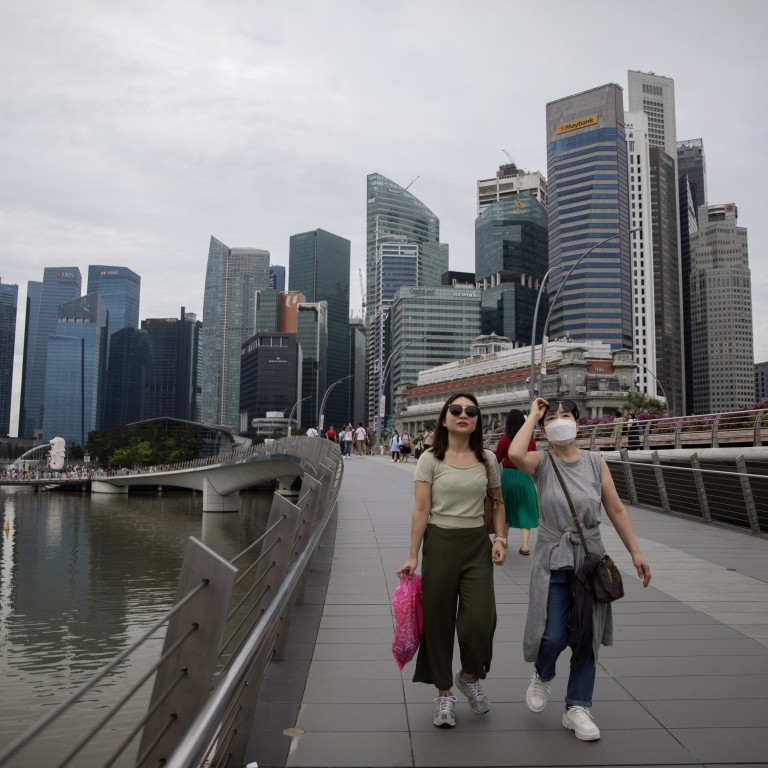
Forget the hype about Hong Kong-Singapore rivalry, thriving Asia calls for collaboration
- Speakers at Post’s ‘China Conference: Southeast Asia 2023’ stress how all countries in ‘region of tomorrow’ can feel the economic benefit
It does not take much to hype the rivalry between Hong Kong and Singapore. A case in point was the exodus of local and expatriate talent amid prolonged pandemic controls and political change.
Many went to Singapore, which resumed normal life sooner. That prompted speculation Singapore was more competitive, but it obscured the bigger picture.
This was put into perspective by the first major overseas forum hosted by the South China Morning Post since 2019. Appropriately it was held in Singapore.
“China Conference: Southeast Asia 2023” focused on the relationship between the two cities, Hong Kong’s special status as a financial centre in the mainland’s continued opening up, and the opportunities this creates for Singapore and the whole region. What emerged is that their potential shared economic future is a far bigger pond to swim in than their rivalry.

Keynote speakers from both Singapore and Hong Kong said the perception of zero-sum rivalry was just hype that overlooked the two cities’ unique strengths as Asia’s key financial hubs. K. Shanmugam, Singapore’s minister for home affairs and law, said each benefited from the other’s growth, and “the suggestion that Singapore is supplanting Hong Kong gives too much weight to short-term factors”.
Hong Kong Financial Secretary Paul Chan Mo-po described Asia as the “region of tomorrow”, saying strong collaboration with the 10-nation Asean bloc, of which Singapore is a financial hub, was a key plank of the economic policy of both the city and mainland China.
Chan not only lauded Hong Kong’s status as the natural international financial hub for mainland-listed companies, but also went further to say it could do, and was doing, more to attract foreign firms. The city needed to “embrace and facilitate” the movement of global firms and serve as the mainland’s international financial centre.
In that respect Beijing is helping pave the way with regulatory changes that reflect increasing yuan liquidity, such as allowing mainland investors to buy shares of foreign companies listed in Hong Kong through a widened Stock Connect channel. This should lure more foreign companies to list in the city and restore its top ranking for hosting initial public offerings.
Hong Kong and Singapore aren’t economic rivals, minister K Shanmugam says
China’s ambassador to Singapore, Sun Haiyan, said Hong Kong was a “super-connector” for investors seeking to enter the mainland market, which also had close links with Southeast Asia.
Ultimately, the regional economic environment may be shaped by geopolitical tensions and financial turbulence elsewhere. But through it all Asia will remain the world’s fastest-growing consumer market, with a growing number of upper and upper-middle-income households – an economic powerhouse with assured access to capital to support innovation and entrepreneurship.

